Yii-Ling wrote this at the end of her first year studying Modern and Medieval Languages (French and Spanish). She lives in Bromley, South-East London and her home country is Taiwan. At school, Yii-Ling did A-levels in French, Spanish and History, as well as an Extended Project Qualification in French poetry.
What attracted you to languages at Cambridge?
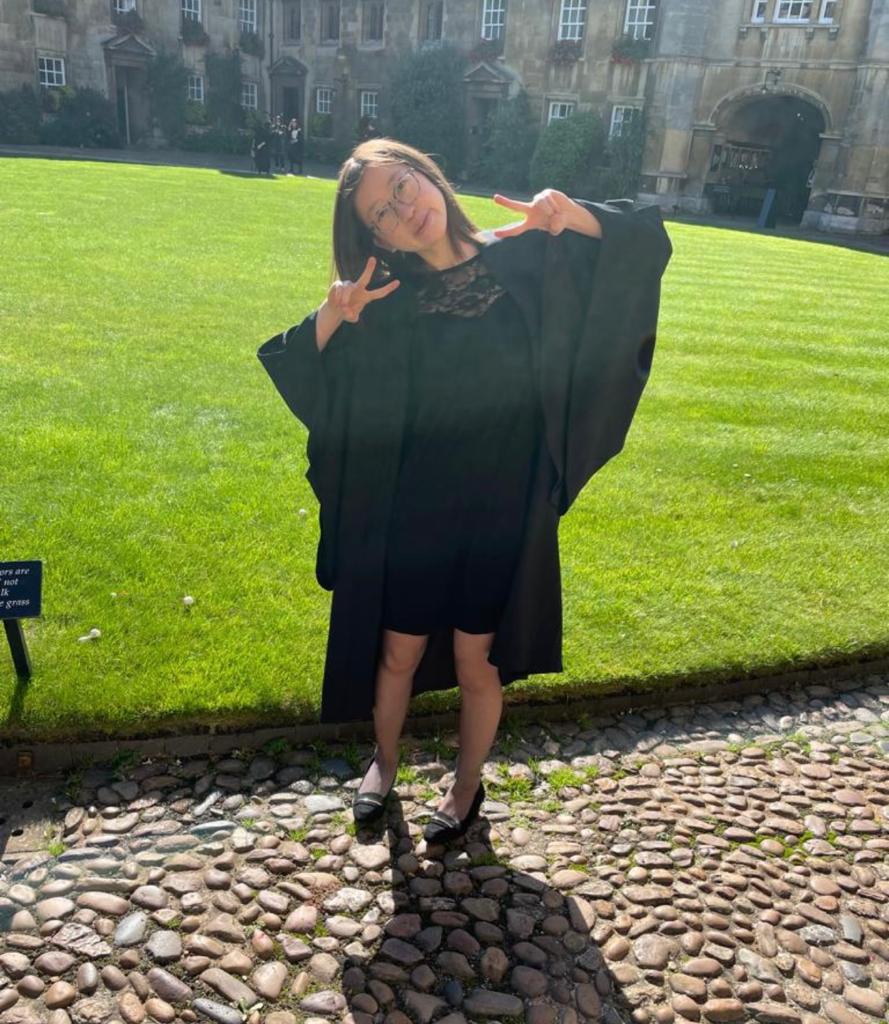
I wanted to study two languages, and I really enjoyed the balance of literature and history offered by the Cambridge course. I was also really interested to dabble in medieval literature, having had a little look at it when writing an article for my school's Languages Magazine. The Cambridge course was unique in allowing me to do all of these things. It was a perfect fit! I also really like the flexibility of the Cambridge course: you can pick a third language in your second year, and cater to your interests in what you study. The course seemed really enriching, and I looked up the specialisms of the academics at Christ's in particular, and thought what they were doing looked interesting! It's amazing to be studying at the same place as the people who wrote your textbooks, and engage in conversations with people doing research in the stuff that you are interested in. Supervisions (the small-group teaching offered at Cambridge) are really good for that, you get to talk about the texts or films you're watching, and how you can take your ideas further and where you can go to find more information. I found it a really exciting prospect.
Was there anything you were nervous about?
Yes - I was more uncertain about the medieval aspects of the course, especially handling original medieval texts and learning how to interpret them, that was nerve-wracking. Also, I know my grammar is not great! The grammar classes are taught at the languages faculty and are bigger than a supervision but smaller than a lecture. They take place entirely in your target language (I didn't find this out until I turned up for one!) so were a bit scary at first for this reason.
What do you think of the collegiate system?
The big advantage of the collegiate system is that you have a central 'hub' to deal with issues like welfare, academics, accommodation at a level smaller than the central university system. Being in a College also facilitates the 'College Family' system, where every first year has a pair of second-year 'parents', with similar personalities and interests, who introduce you to what university life is like. There are also 'subject siblings' who are an older student on your course who basically looks out for you in your first year. It makes coming to university a lot less scary. Additionally, having a Tutor based at your college, who has nothing to do with your subject but is there to help you, means that you can talk to someone without worrying that they will be thinking about your grades.
It's comforting to have a place that can be the foundation of your university life. But at the same time, doing MML means you get to interact with people from lots of other colleges, so you still feel part of the whole university community.
Why did you apply to Christ's?
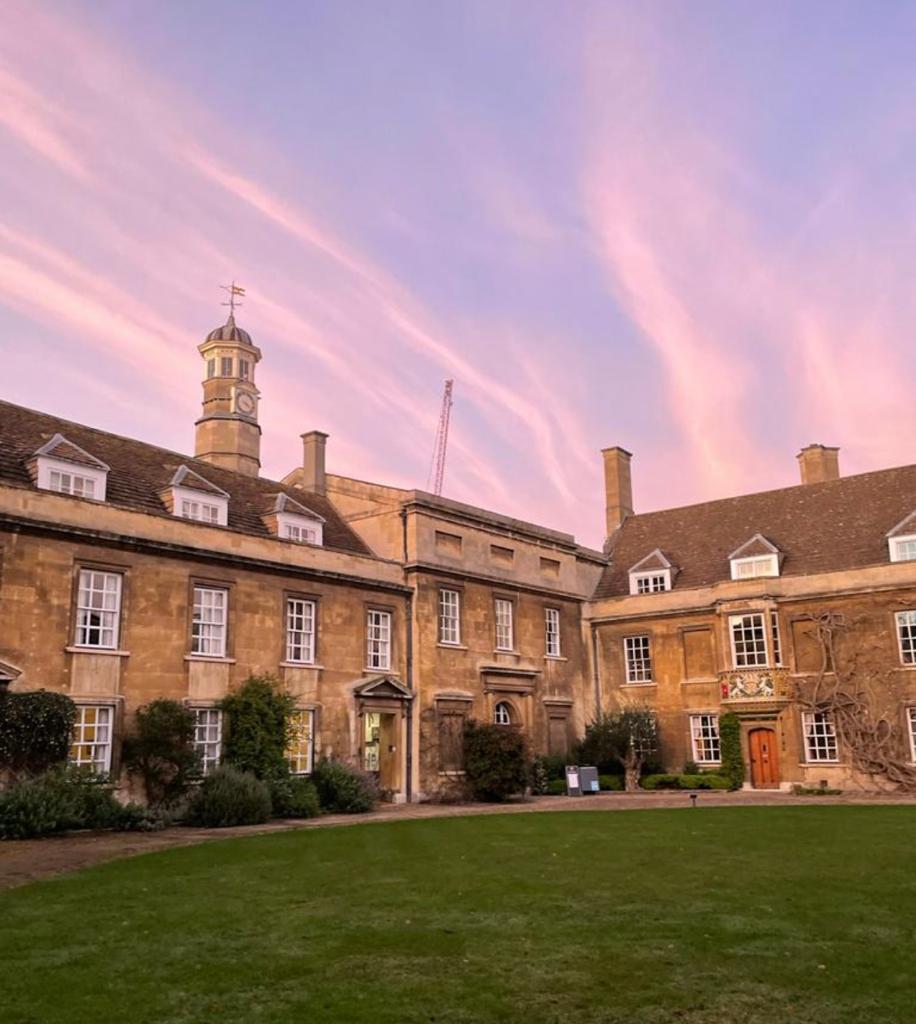
I did the LPN summer school at the end of Year 11 and Year 12, though I actually chose to study Law while I was on it! My mentors on the scheme were really lovely, enthusiastic, and happy about their life in College, which made me more keen to choose it. They also said that Christ's was really big on widening participation and encouraging people from underrepresented backgrounds to come to Cambridge, which is something that was really important to me. I could really see myself living here, and being happy. The really well-organised nature of the summer school, with lots of ongoing support that helped me throughout the application process, motivated me to choose Christ's.
Additionally, it said on the Christ's MML page that we would have a Director of Studies (an academic who overlooks your study) for each of our languages, so I have one French specialist and one Spanish specialist to contact. That's fairly unusual, and is another good reason to choose Christ's.
Has Christ's lived up to your expectations?
Yes! We have college cats: what more could you want? It's a really close community to live in, with a nice balance of extroverts and introverts and lots of things to do for every personality. The grounds are so lovely, especially the Fellows' Garden: it's a beautiful place to relax! I really like how accessible people are: my Tutor (an academic not in your subject who provides pastoral support), Director of Studies, and other teachers are all only an email away, and have provided lots of support. You inadvertently make friends all the time, by just walking around the College grounds. I'm really enjoying it here.
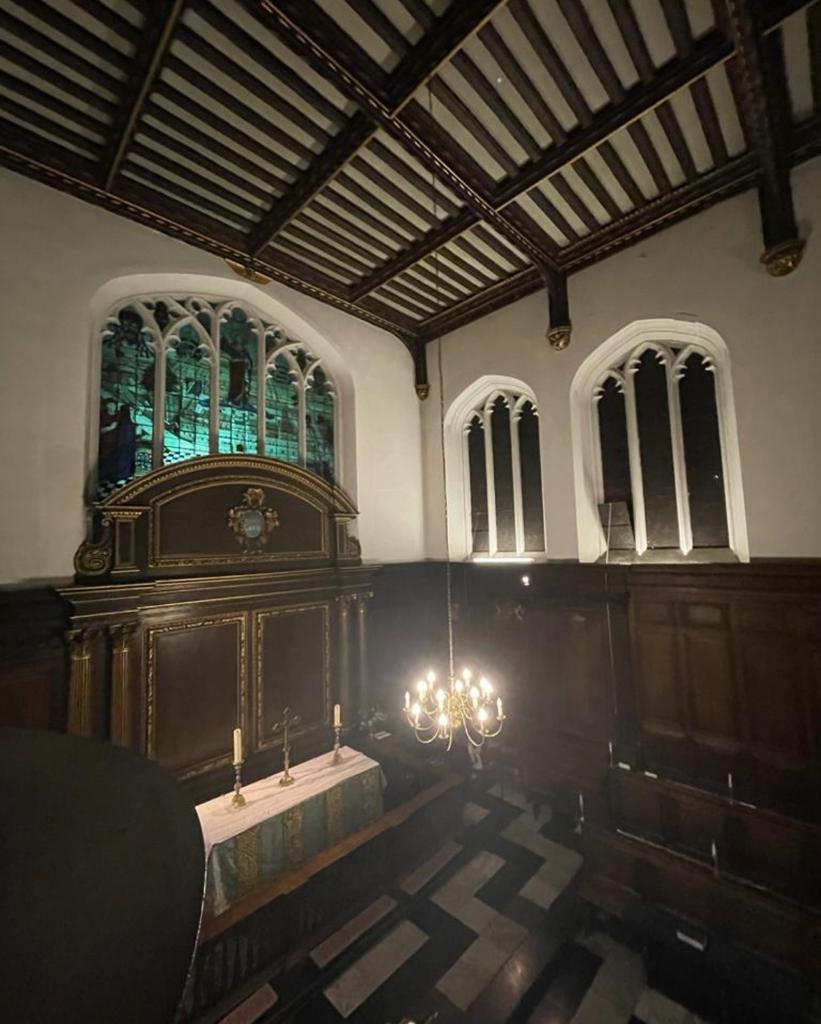
What's your favourite place in College?
Probably the Chapel. A lot of my friends are in the choir so I often go there to see them. I'm not religious in the least, but I think it's a really peaceful environment. The Chaplain is really nice and the choir are a lovely bunch. I like listening to the music, they're all talented and enthusiastic, and I love going there to empty my mind and not look at a screen!
How did you find the application process?
I got started quite early, but that's mainly because I hopped about between lots of different subjects. As well as the LPN summer school at Christ's, I went to one about Italian, because I thought I might want to study that from scratch (called ab-initio here). I also did a subject masterclass for Anglo-Saxon, Norse and Celtic studies, because I considered doing that (it's also a languages and literature course). Having these experiences and reading around lots of different subjects helped me to work out what I enjoyed, and if there were any themes linking the things I enjoyed together that I could look for in a course.
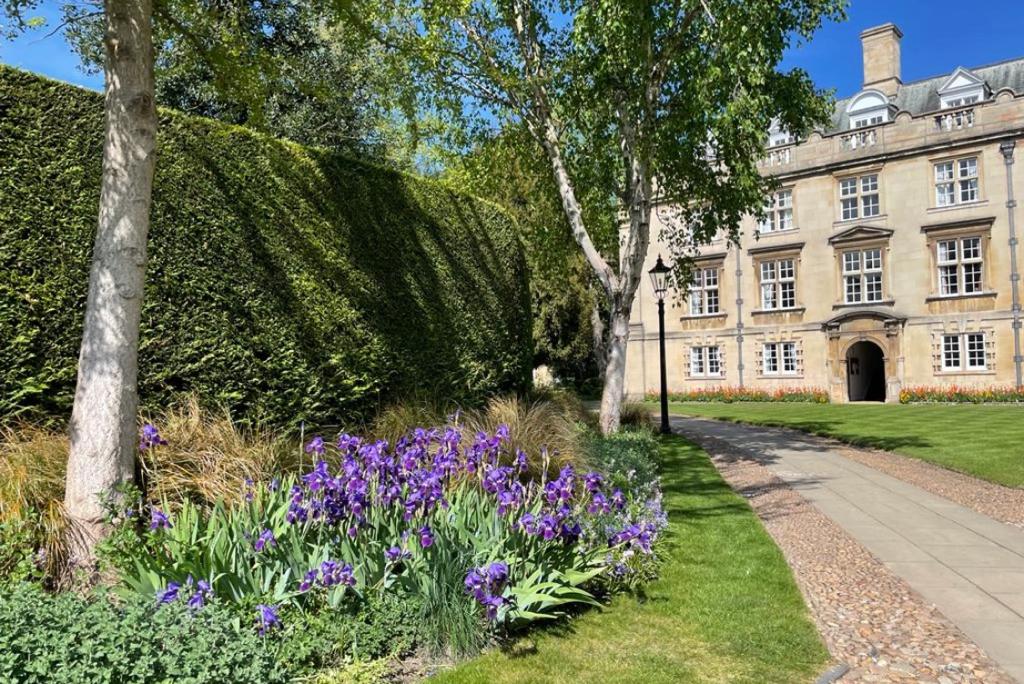
My personal statement went through a lot of the themes I'd enjoyed; I spoke about watching Cléo de 5 á 7 (directed by Agnès Varda) and avant-garde film and feminism, the links to Le mariage de Figaro (play by Beaumarchais) and the French revolution. One of the things that made me want to study languages was coming across Stéphane Mallarmé's Un Coup de Dés. I was fascinated by the typography and wrote about it a lot in my Extended Project. For the Spanish side, I looked into what identity was, and how dictatorship changes identity. I read Casa de Campo by José Donoso, which had a lot to say about transnational identity, I'm doing the Latin America paper next year, which I'm really excited about. I watched a documentary called The Silence of Others which was about life under Franco's dictatorship, and how they were pardoned. I used the additional questionnaire (My Cambridge Application) to talk about the medieval aspects, which were relevant to the course at Cambridge, but not so much my other universities.
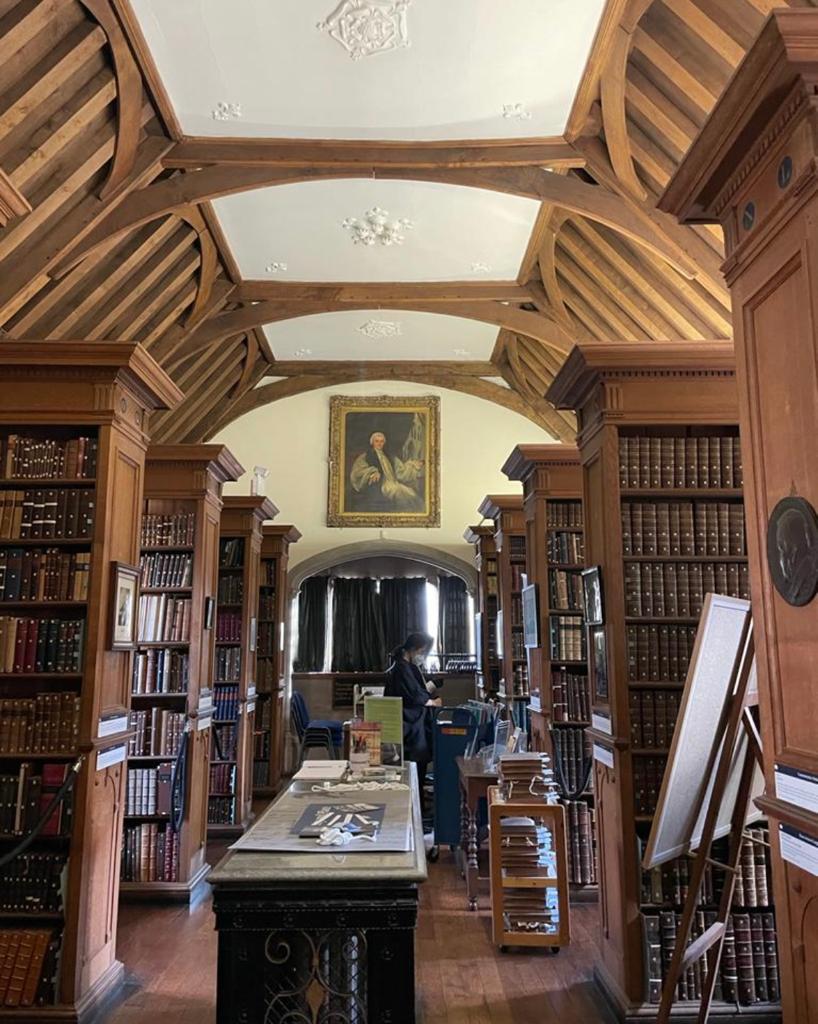
I actually really enjoyed my interviews, much as I was surprised when I heard older students say that beforehand! We were given some reading and had some time to prepare it, then we discussed it with our interviewers. There was some grammar stuff too, for example in one interview I was given a text and we had to talk about its grammatical properties. Bits of the interviews were conducted in the language, which I quite liked: analysing in the language is something we have to do in the course too. We also spoke about my personal statement and reading. I did the UK Linguistics Olympiads, so we talked a little about translation and linguistics as well. I had a mentor through the Zero Gravity programme, and they helped me a lot with my application.
One thing I wish I'd known in advance was how you can really make the most of the things your interviewers say: everything they mention is for a reason, and they are usually trying to help you! You can use new information to show that you're willing to reshape your answers based on what you learn. They aren't always looking for what you know, but what potential you have, and your ability to embrace and thrive from new perspectives.
My advice for anyone applying for MML would be to be aware of the breadth of the course you're applying for: have a look at some texts from various time periods, look at film as well as literature. As well as helping with your application, this will also prepare you well for the course. If you want to study a language ab-initio, maybe read some texts alongside their translations, to show you have some interest and beginner knowledge of how the language works.
How did you prepare for the MML admissions assessment?
I did a ton of practice questions (see the MML Faculty website for example papers). In my year, the first section was about summarising a text in a language, then we had to do a persuasive analysis of the text in English. I found some texts in my languages and practiced summarising, and then asked my English teachers for advice on using persuasive devices. I also learned some vocabulary and sentence starters in my languages that might help with the summarisation.
Before starting at Cambridge, what were you looking forward to and what were you nervous about?
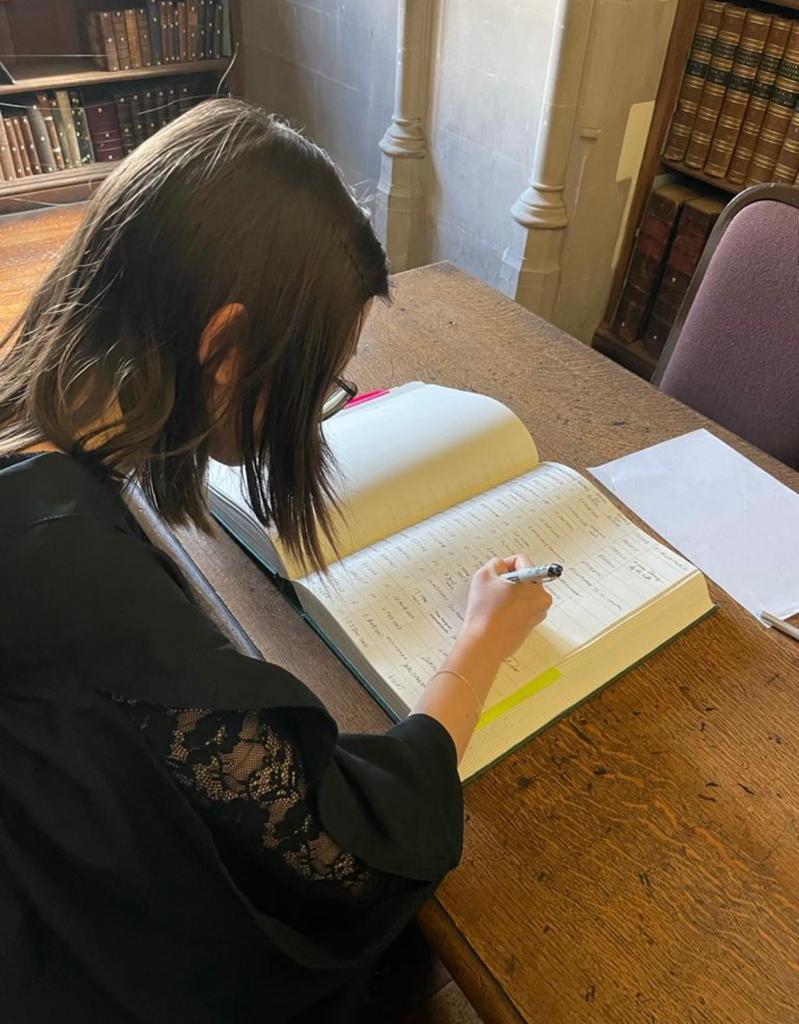
I was really looking forward to meeting my college family, especially after they sent us letters introducing themselves. Generally, I was excited to meet lots of other people who were passionate about their courses, and especially others doing MML. I was also looking forward to being independent and moving out, and especially decorating my room! The new community, city, scenery and traditions were also exciting prospects.
I was a bit worried about the jump between A-level and university, but Christ's gives you a lot of support with things like essay-writing to help bridge that gap. There was the typical stuff about making friends and fitting in, and also I was worried about getting lost. I did get lost (lots!) but it turned out to be absolutely fine.
What helped you to settle in?
I initially found it very daunting, because of all the new people. The thing that helped the most was spending time in the JCR common room; playing air hockey in there was how I met some of my first close friends. I found the organised events forcing us to mix a little more daunting, but going on walks and chatting to people in more relaxed settings was a really easy way to get to know new people, especially as everyone is eager to make friends. Going to eat food at Upper Hall also helped, because chatting to people in the queue and at tables was another easy way to meet others. Settling in wasn't too much of a problem for me, although I didn't really find my 'group' until a few weeks in. So don't worry if you don't find people you gel with straight away: sometimes it does take time!

My favourite memory of Freshers week was playing a game involving logic puzzles in one of my friends' rooms. Also, 'Bops' (think a school disco/houseparty for university students) were a big highlight. We had one in Freshers' week that was 'Sk8ter boi' themed, and we all dressed up and had a really good time.
I got involved in theatre quite quickly. In freshers week, I went to some introductory sessions at the ADC theatre, and then helped with the lighting and sound at some shows later in the week. Balancing the late nights with my workload was a bit of a struggle to begin with, but I'd worked it out by a few weeks in.
What was it like starting lectures and supervisions?
Lectures were pretty much as I expected. I really enjoyed our first lecture, which was by Martin Crowley, because I'd written about the topic in my personal statement and it was cool to see it in person! I really enjoyed translation classes from the off, and discussing the justifications for our decisions and commentaries. Supervisions (very small-group teaching) were a great opportunity to explore our subject. I found the first essay quite challenging, but once you've had the supervision afterwards, and get used to how they want you to go about things, it becomes really enjoyable.
How is MML at Cambridge different from doing A-levels?
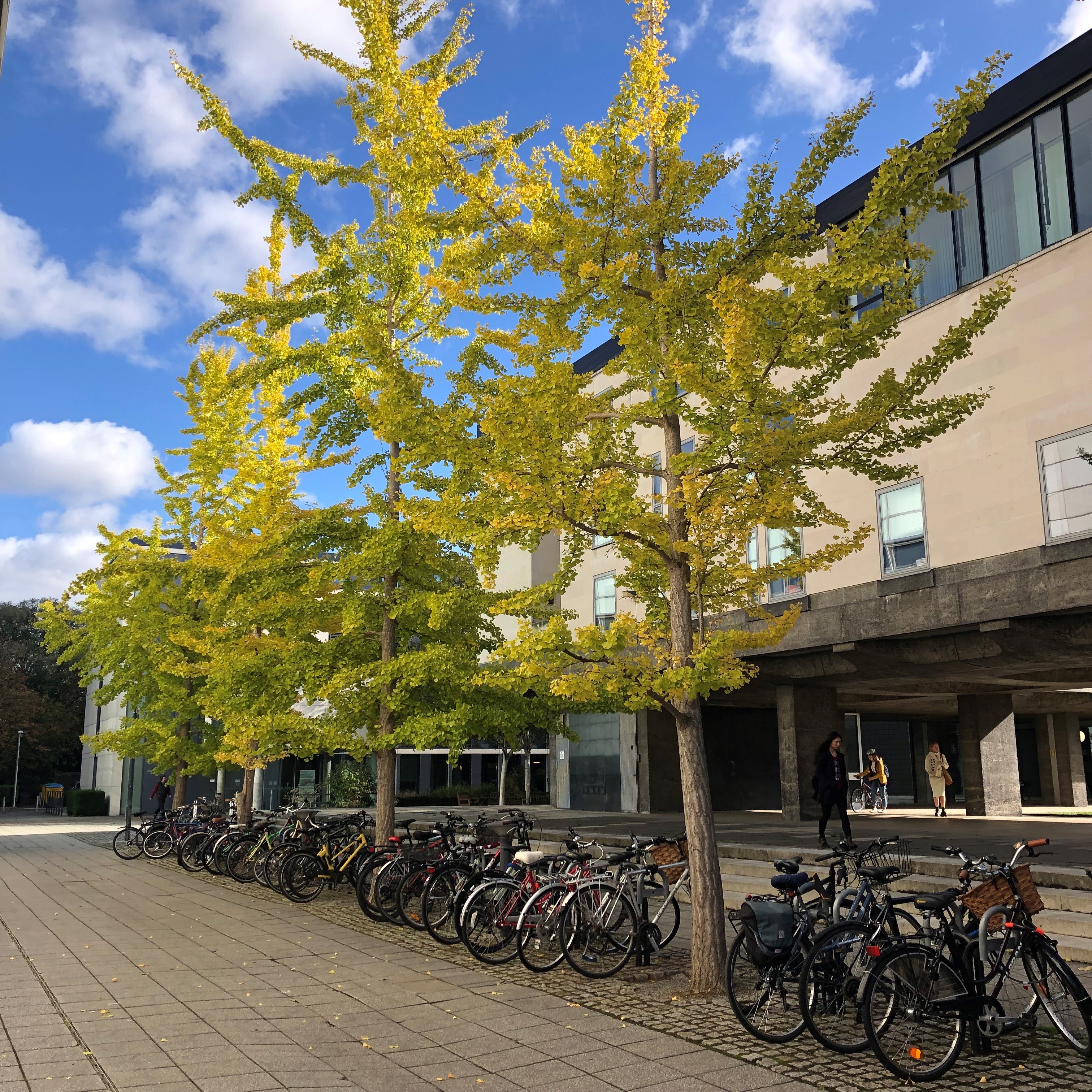
Firstly, the essays are in English! They are also longer and different in style: rather than having a rigid structure, you use the lectures as a springboard to answer the question in your own way. You're no longer memorising lots of things, but immersing yourself in the language and culture, so the whole thing is much less scripted. It's also more flexible, so you can tailor what you're learning to your own interests, and pursue whichever avenues you are interested in. Although MML has a lot of contact hours compared to other humanities subjects, there's also a lot of independent work: you need to motivate yourself to read, look at grammar, and revise things. Time management to keep on top of everything is essential!
What does your timetable look like?
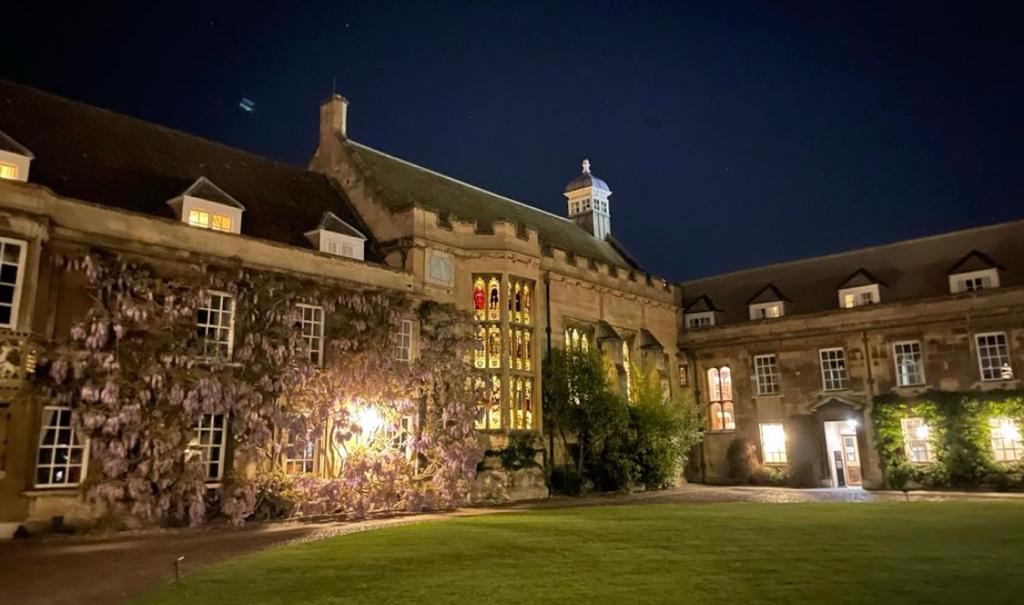
For post A-level languages, you have two lectures for each language per week, mostly they are on literature or film. There's one translation class per language per week. In first year, this is always going from the target language into English. There are also 'use-of' classes, which are kind of cultural classes focused on grammar, and they take place in the language. There are also two oral supervisions a week, which are also conducted in the target language, and prepare you for your oral exams (in exam term, when the oral exams are over, these become extra 'use-of' classes). In addition, there are literature supervisions which are around once a week, where you talk over your essays, and at Christ's there are seminars where you look at the nature of language and dabble in linguistics.
What is the hardest thing about your course?
I think the hardest thing is picking what you want to do! There are so many interesting papers, and within that so many different essays and multiple ways of tackling them, choosing your approach is really hard. I'm prone to waffling, and moving away from the relevant topic into the things I find interesting, which is something I'm working on not doing!
I would also say the grammar is one of the hardest bits. You've covered the basics at A-level, but the really nitty-gritty stuff is hard to get your head around. Understanding the reasons behind grammatical features delves far beyond what you do at A-level or GCSE.
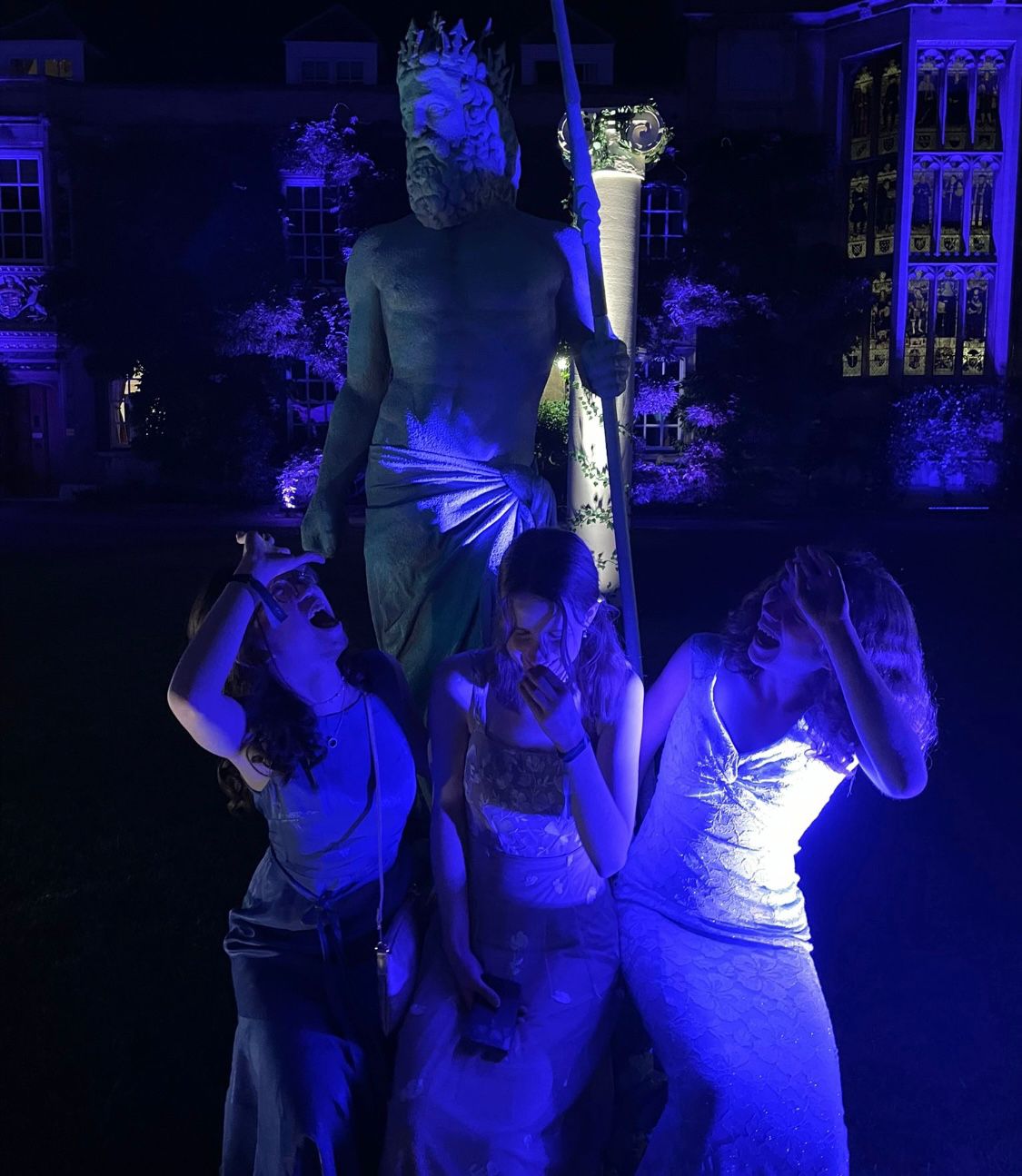
What has been your favourite topic this year?
My favourite topics have been the film studies in both languages. I've really enjoyed looking at filming techniques and the use of symbolism. I also really enjoyed Rebecca Sugden's supervisions on 19th-century French literature, and I'm continuing with that next year. She introduced me to loads of different ways to explore prose and commentaries.
The most important thing I've learned this year is to not accept things as they are on the page. When getting an essay question, rather than just accepting what it means and arguing for one side or another, you can examine what the words in the question might mean in different contexts.
What do you do when you're not working?
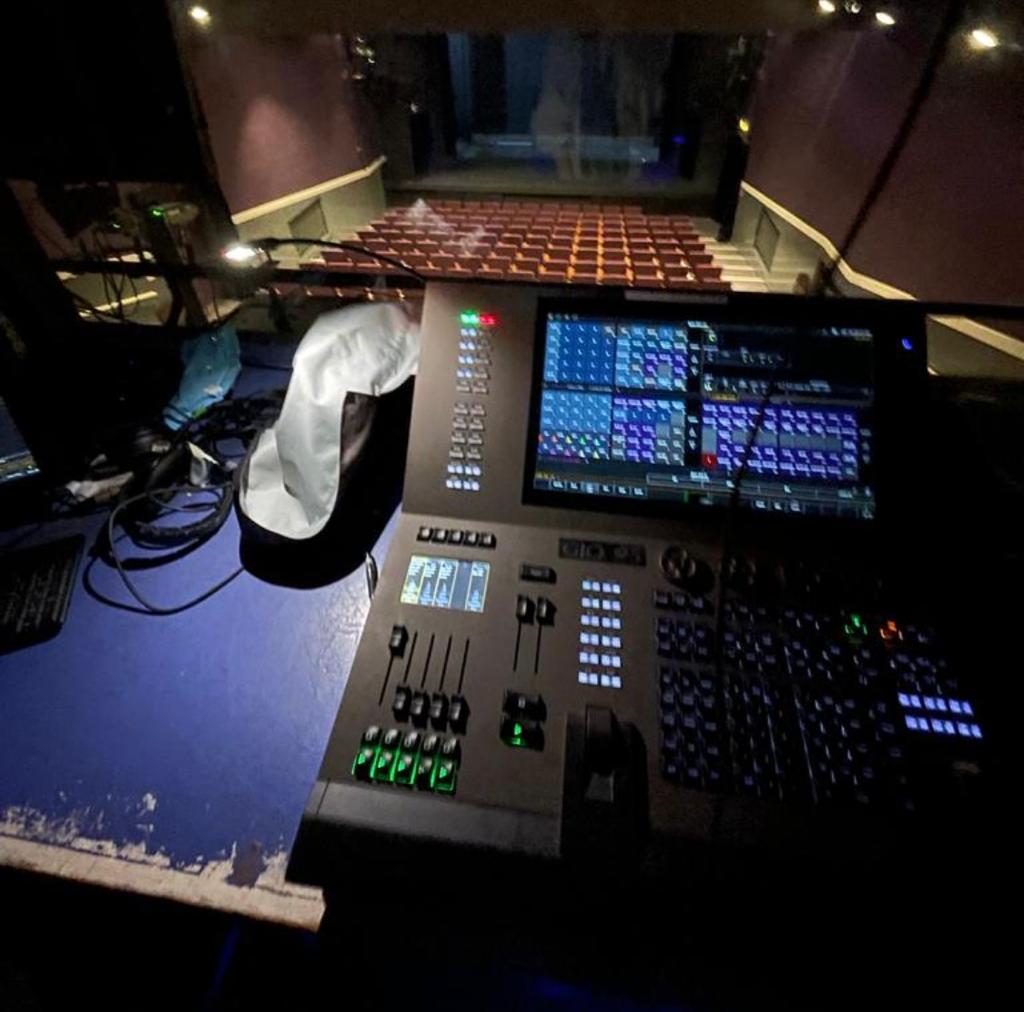
In first term, I did a lot of student theatre-techy stuff. I was the Stage Manager for a Fresher's show, I did some stuff with the Footlights (the University's most renowned comedy society), and I got involved with set design in the workshop of the ADC theatre.
In second term, I got involved with some Zines (small magazines!). I'm on the committee for Dispatches, a new Cambridge arts Zine, which means I do some editing for them. I also used to do a book column for The Cambridge Student, and have applied to do some more writing stuff next term.
My student experience has involved lots of dabbling in many different things. I do a lot of access and outreach things too, like the people who mentored me before I applied. I'm also involved with the Christ's College Music Society, and am the events officer for the Cambridge Univesity Languages and Cultures Society. I like that there are so many opportunities for you to get what you want out of being a student. The student environment really encourages and allows you to get involved with as many things as possible.
What are you looking forward to next year?
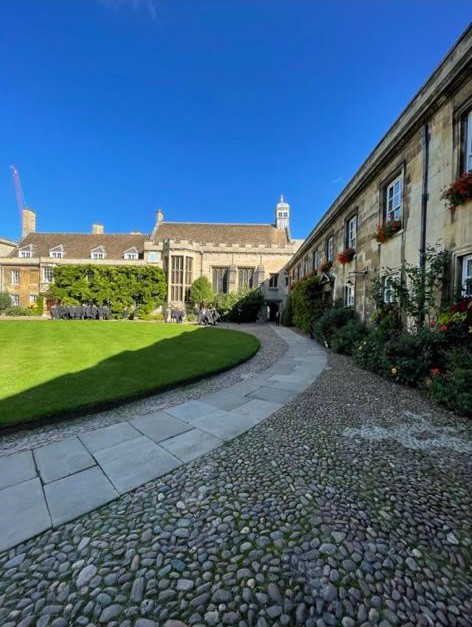
I'm looking forward to all the papers I'm taking next year: French Linguistics, French revolutionary period literature, and Latin American studies. I'm hoping to do Japanese at the language centre. Non-academically, I want to try out DanceSport, and give Latin and Ballroom dancing a go! And I would like to run for a position on Christ's JCR, our student union. I want to try as many new things as possible, and I'm very excited to start a new year, and this time I'll know everyone!
July 2022
Please be aware if you're considering an application that our student writers describe their experiences. Although the majority of the information stays the same, some details may change from year to year. Do read the student profiles in combination with our undergraduate admissions pages for full information.
Back to Student profiles page / Modern and Medieval Languages at Christ's / Next: Ethan's profile
